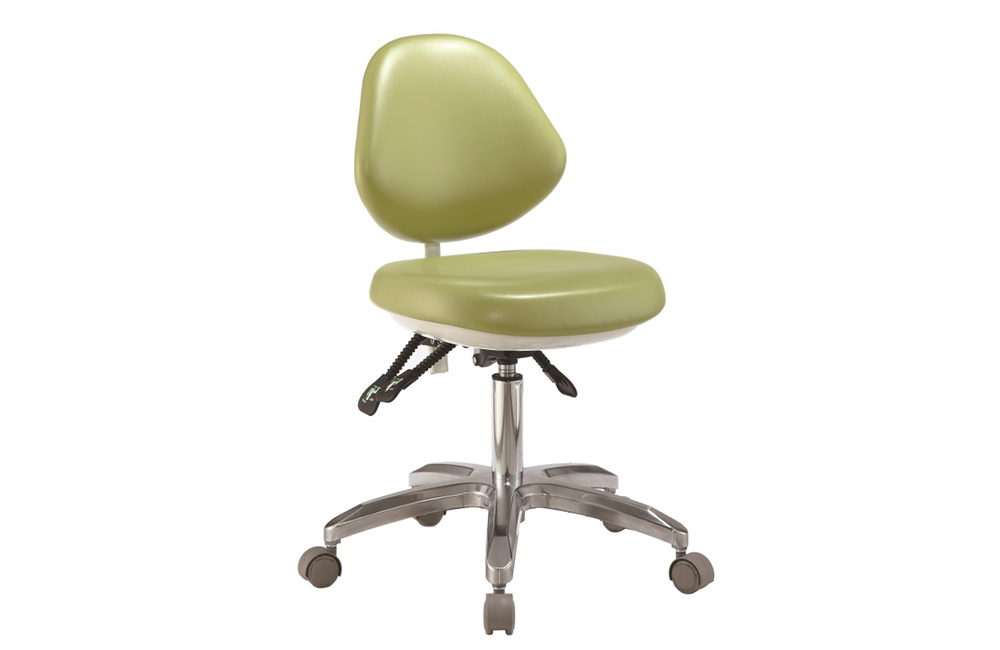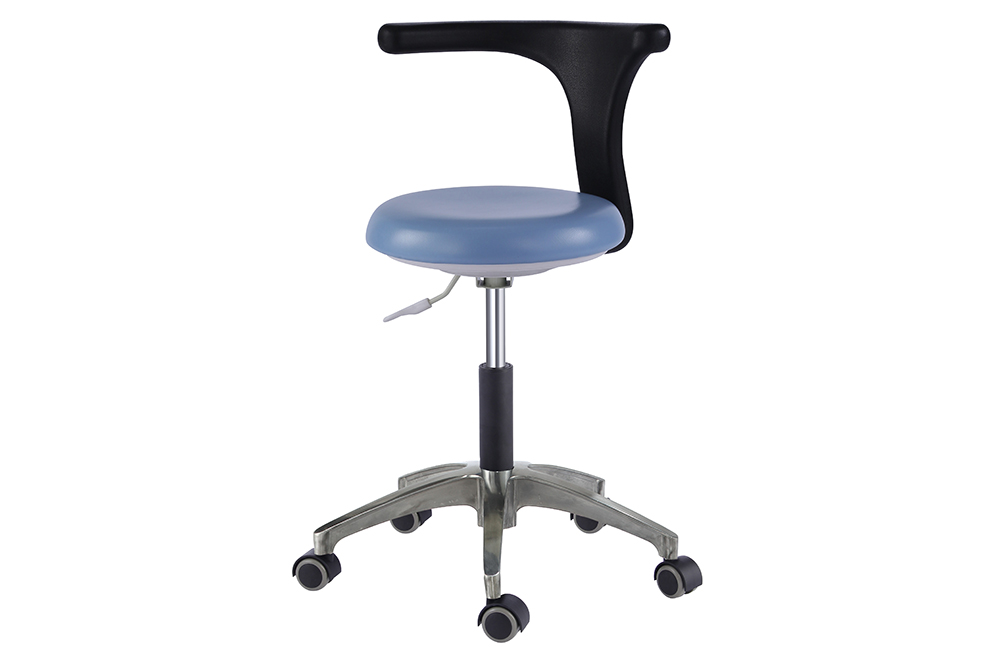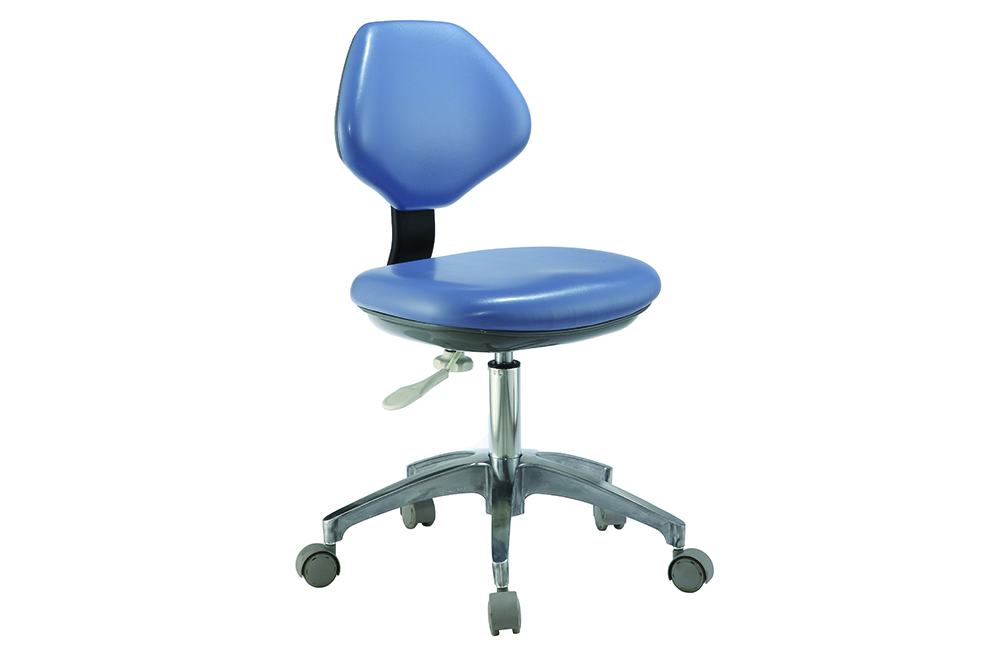In the bustling world of dentistry, where precision and comfort are paramount, the humble dentist stool takes center stage
as an essential tool for practitioners. Defined by its ergonomic design and tailored functionalities, the dentist stool serves as more than just a seat—it's a cornerstone of practitioner well-being and procedural efficiency.
Definition and Purpose of a Dentist Stool
At its core, a dentist stool is a specialized seating apparatus meticulously crafted to
meet the unique ergonomic demands of dental professionals during clinical procedures. Unlike conventional chairs, dentist stools are engineered with precision and purpose, offering a range of adjustable features designed to optimize posture, comfort, and mobility in the dental operatory.
Importance of Ergonomic Design in Dentistry
In the high-stakes environment of dental practice, where practitioners spend long hours performing intricate procedures, the importance of ergonomic design cannot be overstated. Ergonomically designed dentist stools play a pivotal role in
safeguarding the health and well-being of dental professionals, mitigating the risk of musculoskeletal disorders, and enhancing procedural precision and efficiency.
Ergonomic Considerations in Dentist Stool Design
Seat Height and Depth
The optimal seat height and depth of a dentist stool are critical factors that influence posture and comfort during prolonged periods of sitting. Adjustable seat height ensures that practitioners can
maintain proper alignment of the spine and thighs, while adequate seat depth prevents pressure on the backs of the legs, promoting circulation and reducing fatigue.
Lumbar Support and Backrest Design
Adequate lumbar support is essential for maintaining the natural curvature of the spine and preventing lower back pain—a common ailment among dental professionals. Dentist stools equipped with contoured backrests and adjustable lumbar support mechanisms
provide personalized comfort and promote healthy spinal alignment, allowing practitioners to focus on patient care without compromising their well-being.
Armrests and Footrests
Armrests and footrests play a crucial role in relieving pressure on the upper body and lower extremities during dental procedures. Adjustable armrests provide support for the arms and shoulders, reducing strain and tension in the upper body, while footrests
promote proper weight distribution and alleviate pressure on the feet and legs, enhancing overall comfort and circulation.
Swivel and Mobility Features
The ability to swivel and maneuver effortlessly is essential for dental professionals who need to navigate around the operatory with precision and ease. Dentist stools equipped with smooth-glide casters and 360-degree swivel mechanisms enable practitioners to
move fluidly between workstations and access instruments and equipment without straining or overreaching, facilitating seamless workflow and procedural efficiency.
Benefits of Using an Ergonomically Designed Dentist Stool
Improved Posture and Comfort
By promoting optimal spinal alignment and providing customized support, ergonomic dentist stools help maintain proper posture and alleviate discomfort associated with prolonged sitting. Practitioners can
work with greater ease and comfort, reducing the risk of fatigue and enhancing focus and concentration during clinical procedures.
Reduced Risk of Musculoskeletal Disorders
The ergonomic design of dentist stools is specifically engineered to mitigate the risk of musculoskeletal disorders such as lower back pain, neck strain, and repetitive strain injuries. By minimizing stress on the spine, joints, and muscles, these stools
contribute to the long-term health and well-being of dental professionals, enabling them to sustain their careers and continue providing quality care to patients.
Enhanced Focus and Productivity
Comfortable seating promotes mental clarity and concentration, allowing dental professionals to
maintain focus and productivity throughout the workday. Ergonomically designed dentist stools eliminate distractions and discomfort, enabling practitioners to devote their full attention to patient care and procedural tasks, resulting in improved clinical outcomes and patient satisfaction.
Long-Term Health Benefits for Dental Professionals
Investing in an ergonomic dentist stool is an investment in the future health and longevity of dental professionals. By prioritizing ergonomic comfort and support, practitioners can
prevent chronic pain and injury, prolong their careers, and enjoy a higher quality of life both inside and outside the operatory.
Factors to Consider When Choosing a Dentist Stool
Adjustability and Customization Options
When selecting a dentist stool, practitioners should prioritize models that offer
a wide range of adjustability and customization options to accommodate individual preferences and ergonomic needs. From seat height and depth to lumbar support and armrests, adjustable features ensure personalized comfort and support for practitioners of all shapes and sizes.
Durability and Quality of Materials
Durability is a key consideration when choosing a dentist stool, as it directly impacts the longevity and performance of the equipment. High-quality materials such as medical-grade upholstery, reinforced metal frames, and premium casters ensure durability and reliability,
withstanding the rigors of daily use in the dental operatory and maintaining optimal functionality over time.
Compatibility with Dental Operatory Setup
Dentist stools should be compatible with the layout and configuration of the dental operatory, seamlessly integrating with existing equipment and furnishings
for optimal workflow and efficiency. Practitioners should consider factors such as stool height clearance, maneuverability around treatment chairs, and storage space requirements to ensure compatibility and ease of use in the clinical environment.
Budget Considerations and Cost-Effectiveness
While it's tempting to prioritize cost savings when purchasing dental equipment, practitioners should view dentist stools as
long-term investments in their health and well-being. While budget constraints are a valid consideration, it's essential to strike a balance between affordability and quality, opting for models that offer the best value in terms of durability, comfort, and ergonomic features.
Conclusion
Ergonomic dentist stools play a pivotal role in enhancing the health, comfort, and productivity of dental professionals in the clinical setting. By prioritizing ergonomic design principles and investing in high-quality seating solutions, practitioners can safeguard their well-being, reduce the risk of musculoskeletal disorders, and
optimize clinical performance for superior patient care. As the foundation of the dental operatory, ergonomic dentist stools serve as a testament to the industry's commitment to innovation, efficiency, and practitioner well-being, ensuring a bright and sustainable future for dental practice.




